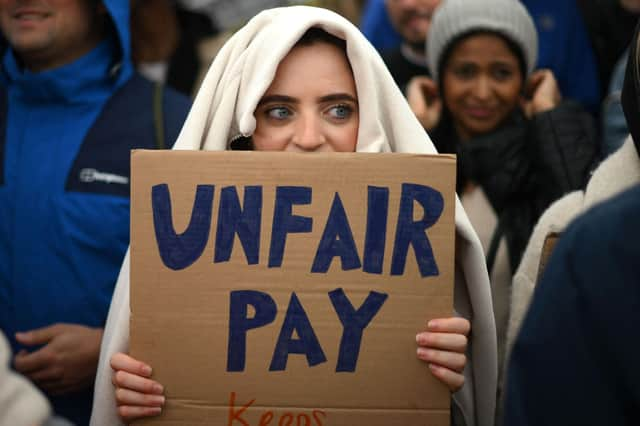Avoiding junior doctors' strike action in Scotland could be Health Secretary Michael Matheson's first big win – Joseph Anderson


Health Secretary Michael Matheson and Dr Chris Smith of the British Medical Association sat down earlier this week and have both committed to “progressing pay negotiations with junior doctors”. “We will move forward and agree on dates for negotiations to start soon,” the announcement said, hinting at the urgency with which the Scottish Government is working to have a new pay offer in place before the end of the BMA’s junior doctor strike ballot, which is due to close on May 5.
As chair of the BMA’s Scottish junior doctor committee, Dr Smith previously said the Scottish Government had “repeatedly failed to meet our demands for pay negotiations”, and described the current offer of a 4.5 per cent uplift as “derisory”. That offer is the same as junior doctors received in 2022/23.
Advertisement
Hide AdAdvertisement
Hide Ad“This was, in reality, a massive pay cut,” said Dr Smith, “or the equivalent of working three-and-a-half weeks for free this year compared to last. “And this is on top of the pay erosion experienced which means a foundation doctor earns 23.5 per cent less than they would have done in 2008 – a figure which is even higher for registrars.”
There is now some hope that the scenes unfolding in England – where around 350,000 appointments and surgeries are set to be cancelled – can be avoided in Scotland. Although the true impact of the strike will only be known once statistics are released in at least a week’s time, the chief executive of the NHS Confederation, Matthew Taylor, said the effects would likely be “heartbreaking” and called on both sides to end their “battle of rhetoric”. He told the BBC the strike would be more disruptive than the 72-hour stoppages by NHS staff last month, which led to 175,000 cancelled appointments.
However, speaking after the meeting with Mr Matheson, Dr Smith warned that the strike ballot will still be going ahead. “While this is a step in the right direction it is by no means a guarantee to yield the results we desperately need to secure the future of the junior doctor workforce, and our ballot on industrial action is continuing as planned,” he said. “It is vital that we return the strongest possible result to take to the table in our negotiations.”
As seen in disputes with the Royal College of Nursing (RCN) and GMB Scotland, which represents ambulance service staff, the willingness of the Scottish Government to get around the negotiating table has again made the threat of strike action much less likely – and has made apparent the ideological differences with the UK’s Conservative government, which has refused to engage with unions and has let England’s NHS suffer as a result.
While Mr Matheson is still finding his feet in his new role, avoiding a junior doctors’ strike could be his first big win.
Comments
Want to join the conversation? Please or to comment on this article.